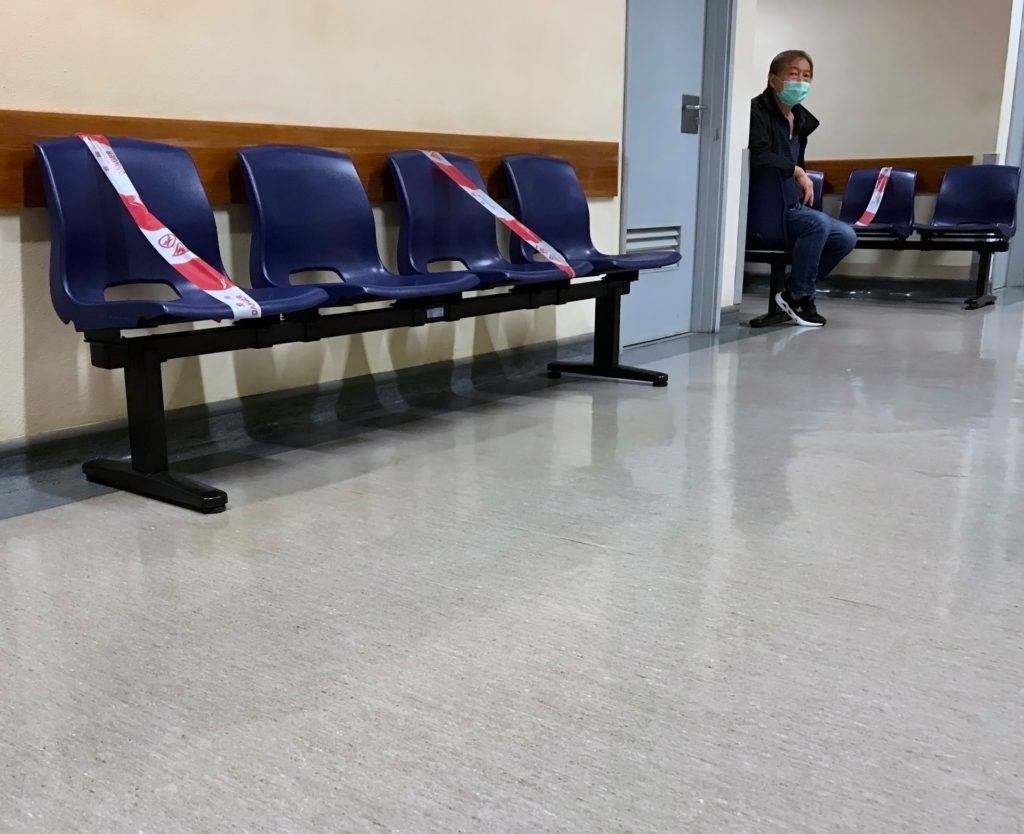The postponement of non-essential health care in times of pandemic could have collateral damage that makes itself felt long after the initial emergency is over, according to a study from the universities of Louvain-la-Neuve and Leuven.
The problem of renunciation of care – where sick people decide not to seek medical help – is well known in the health sector, but is normally related to financial difficulties, the cost of care or the need to stop working.
However, the current situation is rather different. Now there are two reasons why people decide not to visit the doctor or the specialist: voluntary and involuntary.
On the one hand, patients take it upon themselves to cancel appointments already made, or simply avoid seeking help. The reasons may be to avoid contact with other sick people at the clinic for fear of contracting the virus or simply to avoid adding extra work to the burden of the medical system.
According to the study, that behaviour in the first wave of the epidemic in Belgium affected mainly appointments with specialists, with 54% of those questioned having cancelled or simply missed an appointment with a specialist, compared with only 22% of appointments with generalists.
Related News
- 14% of adult population in Belgium vaccinated, coronavirus infection rate declining
- Brussels hospital staff open up about first wave of the pandemic in new book
On the other hand, as we are now seeing, non-essential care is being screwed back to allow hospitals to concentrate their resources on an explosion of Covid-19 cases, so even patients who would be willing to see a specialist are not able to.
However, the need for care does not go away with a lack of opportunity. A person who is ill will, in general, continue to be ill. And the postponement of a case will only make matters worse, leading to a deterioration of the condition as time passes.
“This deterioration is all the more important when people are in poor health: people with a chronic disease see their state of health deteriorate more quickly than people without chronic disease,” the study states. “Thus delays, cancellations and foregone health care can increase the risk of morbidity and mortality.”
The study, among 3,200 patients online, may only show part of the picture, the authors warn. Because it was conducted online, the results may exclude social groups who are less likely to use online media but not less likely to suffer the consequences of renunciation of care.
“The consequences of unfinished medical care are likely to be even greater in less socially advantaged subgroups of the population,” the study says. “Indeed, they will accumulate not only a waiver of medical care for financial reasons but also a waiver due to confinement.”
The study concludes by calling for a system aimed at bringing those patients who have missed out on a case for one reason or another back to the clinic.
“We need to deal quickly with those who have missed out on testing opportunities. We need to create a comprehensive public health plan and make sure not to wait too long.”
The study is published in Regards économiques, a journal of the UCLouvain.
Alan Hope
The Brussels Times

